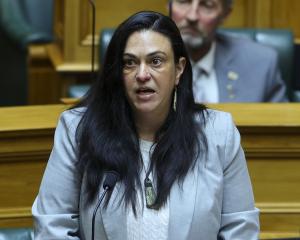Millions of people tuned in to watch Portugal stun France in the final of Uefa Euro 2016. Many of them will have been young football fans determined to match the skills of their heroes.
The win at Wimbledon by Andy Murray must be inspiring the young tennis players in Dunedin this week competing in championship matches. More than 300 athletes in seven sports are competing in this week's New Zealand area schools sports tournament in Dunedin. And the Rio Olympics 2016 are coming soon.
However, it seems New Zealand has become a nation of watchers rather than participants in sport and the Government and agencies wants to do something about this problem.
Sport and Recreation Minister Jonathan Coleman has welcomed the release of an action plan which aims to encourage young people to get active and stay active. Participation in sport leads to a more active, healthier population and ultimately better social incomes.
Mr Coleman, also the Health Minister, has a vested interest in ensuring young Kiwis get active and stay active. Fitter New Zealanders lessen the cost of healthcare as they get older.
There may be a few joint problems to deal with, but heart disease and obesity will not be so prevalent in those who remain active throughout their lives.
Kiwi kids have traditionally been active in sport but around the world participation rates are falling and New Zealand is not immune. In 2014-15, 11% of all children aged 2 to 14 years were obese.
Tackling obesity is a key priority for the Government and Dr Coleman says New Zealand is one of a few OECD countries with a comprehensive plan and obesity target to support it.
Encouraging young people to participate in sport to help combat child obesity is a noble aim but one which will face innumerable hurdles.
A British study from last year shows cost is the biggest barrier to young people's participation in sport because a third of the nine million young people aged between 14 and 24 in the United Kingdom live in poverty.
The study recommends schools open up their facilities at evenings and weekends to enable more young people to take part in sport. Charges for leisure centres and sports facilities are too expensive for those aged over 18. Costs are at adult rates in the UK and young people face poor work opportunities and are generally on extremely low incomes.
Translating that data to New Zealand is not too difficult. Poverty in this country is a large part of the current political landscape, along with inadequate housing.
Asking parents living in deprived parts of the country to buy sporting equipment for their school children when they may be struggling to put food on the table and buy clothes is an issue to consider.
Whether poverty is accounting for some of the fall-off in participation numbers in New Zealand sporting clubs can only be answered by a more detailed study. But the costs of participation - which continue to rise as participant numbers fall - will be a major barrier to continued activity for many.
Sitting a child down in front of a television, or a computer screen, is cheaper for parents. And if both parents are working, which one can take time off to supervise the children at sport when both incomes are needed to survive?
The Young People Plan is about taking a fresh look at what is provided for young people to ensure they participate and develop a lifelong love of sport. That includes looking at why they stop playing and how that can be changed.
One of the core beliefs of the plan is community sport should be fun. Sport plays a crucial part in the New Zealand psyche. When teams do well, numbers of participants grow.
The fresh look being taken by the Young People Plan must include factors such as cost and the availability of community facilities to be relevant to the needs of young Kiwis and their parents.












